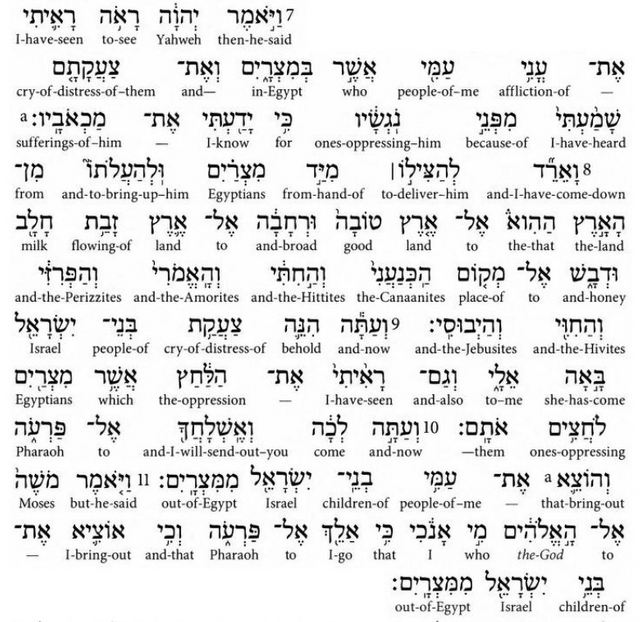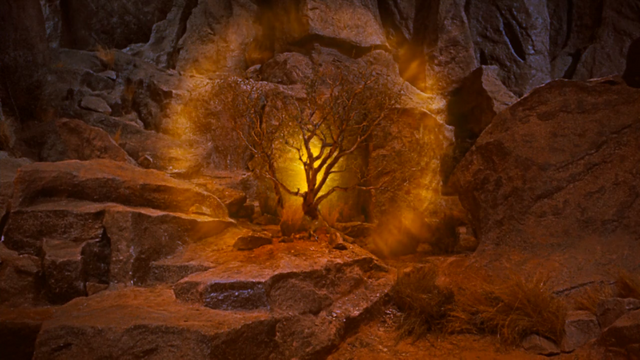The language of ivrit ( עברית ) Exodus 3, Post #2
Welcome to my Hebrew reading & language series.
Exodus 3:7-11
We started chapter three last week with Moshe (Moses) speaking with God, his shoes off, and he was afraid too look at him because he was sitting there with pure righteousness. That would be hard to take for anyone!
In the movie, Moshe asks why The Almighty would allow his people to be forced to serve the Mitsraim (Egyptians) and suffer so. From YHVH's mouth to the ears of Moshe, we see that the topic was raised by the King of the Universe first. He explains that he has heard theirs cries, and knows their suffering.
"I have come down to deliver them" he states as a matter of fact and even tells Moshe the place to which he will bring them.
Next comes the hard part, "I will send you to Pharaoh..." and states that they will be brought out of Mitsraim by Moshe himself.
The question, "Who am I that I should go to Pharaoh?" but Moshe does not see that his birth at a time when children were being killed, his upbringing in the house of Pharaoh, and his escape all make him the only choice for the job. Quite frankly, he is missing the years of planning and miracles that were done in order to set him up to be "The One" for the job, Only Moshe has the contacts and clout to get under Pharaoh's skin and complete the task.
peared to him in flame of fire in the midst of the bush. He saw that the bush was burning but was not being burnt up. Moshe turned aside to find out why the bush was not being burned.
That is when God chose to speak to him. He called out to Moshe using only his name. Moshe responded and God told him to come near and take off his sandals because the place he where he was standing is Holy Ground.
He introduced himself to Moshe as the God of Abraham, Isaac and Jacob and Moshe hid his face because he was afraid to look at the God. Moshe did not want to look at "The God" and I love that "The" is used as if to say the others are faking it. They are not gods at all.
The other thing that strikes me is how the messenger (called an 'angel' in English) is the one who appears as a burning bush, then Elohim speaks once the oddity is observed.
Today's reading
English
Then the Lord said, "I have surely seen the affliction of my people who are in Egypt and have heard their cry because of their taskmasters. I know their sufferings, and I have come down to deliver them out of the hand of the Egyptians and to bring them up out of that land to a good and broad land, a land flowing with milk and honey, to the place of the Canaanites, the Hittites, the Amorites, the Perizzites, the Hivites, and the Jebusites.
And now, behold, the cry of the people of Israel has come to me, and I have also seen the oppression with which the Egyptians oppress them.
Come, I will send you to Pharaoh that you may bring my people, the children of Israel, out of Egypt." But Moses said to God, "Who am I that I should go to Pharaoh and bring the children of Israel out of Egypt?
Hebrew

The story continues next with "I will be with you"...
Info on each letter starting at the beginning
If you are just starting, my lessons are all here starting at Alef, adding vowels (the dots and lines) as we go. I explain the meaning of each letter and its numerical value. Just go to my blog and scroll to the bottom or click here
Get your Hebrew Bible now!
Click here to obtain the book we are using. It is a free download or browser usable.
Thanks for reading.
